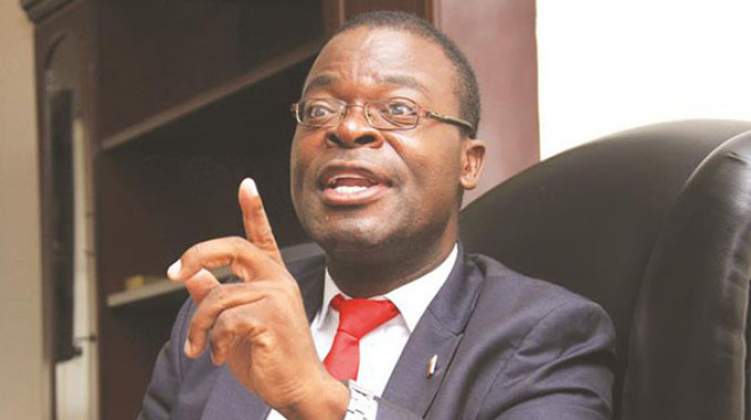Students who have not paid their fees must notify their respective Student Affairs Departments in advance so that universities can permit them to write examinations, according to Professor Amon Murwira, Minister of Higher and Tertiary Education Innovation Science and Technology Development.
Prof Murwira said when students come too late and the examination is in progress, ‘nothing can be done’ yet the government has schemes to help underprivileged students
However, the minister claimed some students were “shy to declare their poverty” and were therefore barred by digital systems.
Prof Murwira’s comments come after MPs recently questioned the government’s policies on underprivileged students in state universities who are prevented from taking exams due to nonpayment of tuition fees.
This week, several students at the National University of Science and Technology (NUST) in Bulawayo were unable to write their exams due to a failure to pay fees and register.
Read: https://cite.org.zw/nust-students-denied-exams-over-unpaid-fees/
In his response, the minister said the government had introduced the work-for-fees programme and the Student Loan Scheme.
However, he said the loan scheme had a “low uptake.”
Prof Murwira this information was kept at the Student Affairs Department and disseminated for the students benefit but if students did not seek that help, they would be barred before the examinations.
“When they come too late and the examination is in progress, there is nothing that we can do but because I am speaking in public and for the public record, it is very important that any student who might be anticipating a problem has to approach the Student Affairs Department,” Prof Murwira said.
The minister said the government and universities work with structures, which are “organised systems and there is no chaos.”
“Based on that, we are saying our desire is for a student who might not have had any chance to pay fees to say so, so that they are waived,” Prof Murwira said.
“These things are happening everyday and so, this is the Government’s position when it comes to this. It is in our interest to have all our students write examinations as quickly as possible so that we can use them to industrialise and modernise this country. If there is a specific case that needs a specific attention, we are here.”
The minister also stated that “education is not free.”
“It means that we have to pay for it. The public has to pay for it. The State has to pay for it, especially for it to be of quality that can result into knowledge and skills that are giving us the capability to develop this country,” he said.
“ However, we recognise that people are differently abled in terms of capacity to pay. All those students that are indigent, are given work-for-fees programme. This work-for-fees programme is where students who are unable to gather enough money to pay fees, are enrolled by the university into work for the university and then the university helps them to pay for the fees or waivering for the fees,” he said.
Prf Murwira said the government started experimenting with this programme in 2019.
“This programme is very mature. If you go for example to Midlands State University, we have more than 300 students who are on this programme,” he said.
“However, one word of caution is that first of all, we have to own up. It is not a crime to be poor such that sometimes people are not coming out to say, I cannot afford then we will be able to help them. People shy away from asking for help.”
Prof Murwira added: “ I do not know what happens when people think that may be if I say I am poor somebody. In actual fact, being afraid of saying you are poor is the biggest enemy that you can have.”
The minister noted that the Student Loan Programme was put up on 12 July, 2018, through CBZ.
“During that time, we put $110 million in CBZ but it looks like people actually do not want to borrow money. This money was borrowed by very few students. That is why we then thought about the work-for-fees programme, which seems to have a more uptake,” Prof Murwira said.
“ If you go to the University of Zimbabwe (UZ) today, you will be able to see that the majority of people who are working in the university’s industrial park, in the UZ grounds and so forth, are actually students. So, we have programmes but we also have to admit that we are not 100 percent effective.”
Prof Murwira said if students did not declare they had no money, they would be barred by digital systems.
“They bar you without even us knowing that you have been barred. We have an ICT system which says if you are not registered online, you will not write the examination. We will not even know; they are our computers that will be knowing. When you go to the examination venue, the guard will say you are not registered. So this is the issue, what we are saying is that we need honesty and transparency on the part of the student and on the part of the university,” said the minister.

